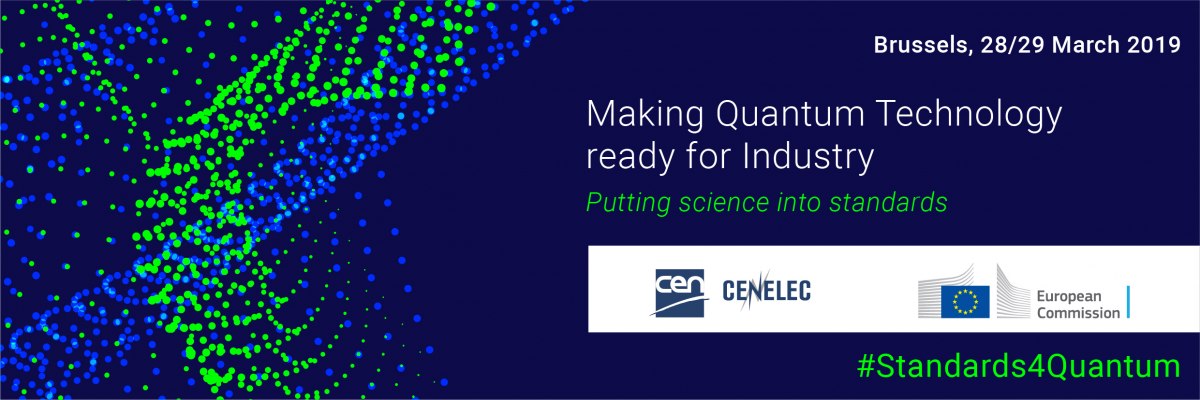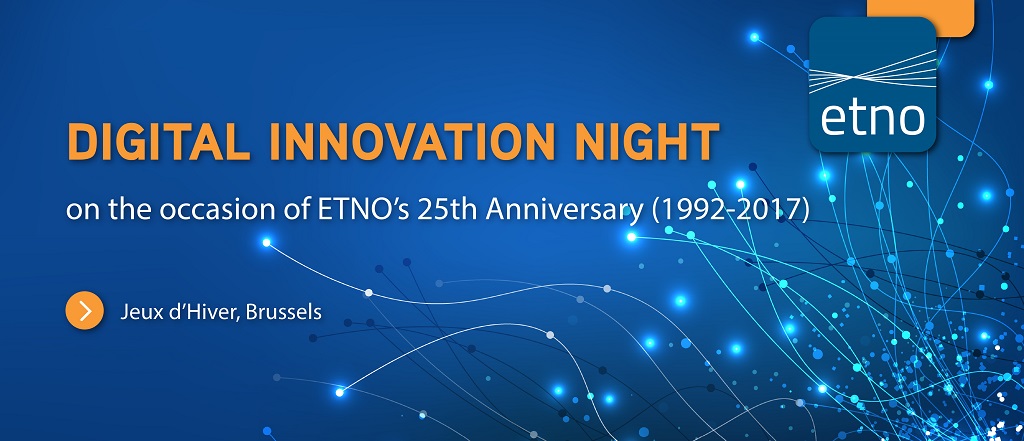
Digital Innovation Night
Date
Address
Section
Event Location
Event Description
The story
Has the European digital revolution started in 1992? It is at that time that some crucial trends began, with early signals of the mobile and connectivity boom coming together at the same time.
Europe was changing and so were markets, technology, policy and regulation. May 10, 1992 was a sunny day in Madrid, when a group of European telecom entrepreneurs gathered to found ETNO. It was the first association ever representing European Telecommunication Network Operators. On that lovely day of May, the hopes were high for technological progress and the very first foundations of the Digital Single Market were being laid out at the political level. The digital revolution, though, was yet to come: it was in their hearts, in their vision, in the networks that their companies were building and developing.
1992 is the year in which momentous events happened. Europe, first. On February 7, heads of state and government signed the Maastricht Treaty, effectively creating the European Union and laying the foundations for deeper political and economic integration, for a single market and for one currency.
At the same time, technology was booming. Dial-up internet, around since the ‘80s, was first commercially offered that year. At the same time, Nokia, one of the drivers of the mobile revolution, took the strategic decision to concentrate solely on telecommunications. In the same months, the very first digital hand-size mobile telephone was launched (Motorola International 3200). The first SMS was sent in UK, just one year after the first ever GSM call, which was made by the Finnish Prime Minister, then in Helsinki, to the Mayor of Tampere, a good 170 km away.
Today, European citizens are citizens of the world also thanks to powerful telecommunication services and networks. A wealth of new digital services has been developed on top of broadband connectivity. Consumer expectations and needs, industrial sectors, public administration and the society as a whole are being re-shaped by the power of communicating.
With networks becoming smarter and smarter, new opportunities are opening up. The Internet of Things is happening and it is expected to boom in the coming years. 5G is already being tested and EU operators plan to be available commercially already in 2020, with some pioneers expecting to launch already next year. As networks and services evolve, data analytics and artificial intelligence, promise to empower citizens with ever evolving standards of quality, increased choice and innovative applications.
The history of telecommunications is also the history of how humankind communicates. Join us to discuss how our digital future will look like and how innovative networks and services can help Europe build a new digital Union.
Details
Date: 10 May 2017
Time: 16.30h
Venue: Jeux d'Hiver, Chemin du Croquet 1, 1000 Brussels, Belgium
Twitter: #ETNO25
Programme
16.30 – 17.00: Registration & Welcome
17.00 – 18.30: A vision for innovation
• Dominique Leroy, CEO, Proximus
• John Foster, Director of Strategy, Telefónica Digital
18.30 – onwards: Join our Digital Reception, network, mingle and... bring home a digital 3D scan of yourself, brought to you by Of"Cores.
More to be announced...
Related Events
From bricks to bytes. How innovative technologies contribute to a sustainable construction industry.
Can privacy and security online really coexist through strong encryption? Should law enforcement authorities have access to your private communications?

Vodafone and the Romanian Presidency of the Council of the European Union invite you to their joint event Access to culture: does technology help or hinder?
Pages
Events of the week
Jobs
EURACTIV News
- What ‘deal’ the EU can offer Trump
- COP29 outcome: EU upbeat on finance, disappointed on climate action
- Hard right’s Simion in with a chance as Romanians vote for president
- Developing nations blast $300 billion COP29 climate deal as insufficient
- Warsaw Mayor runs for Polish president as ruling party’s candidate














